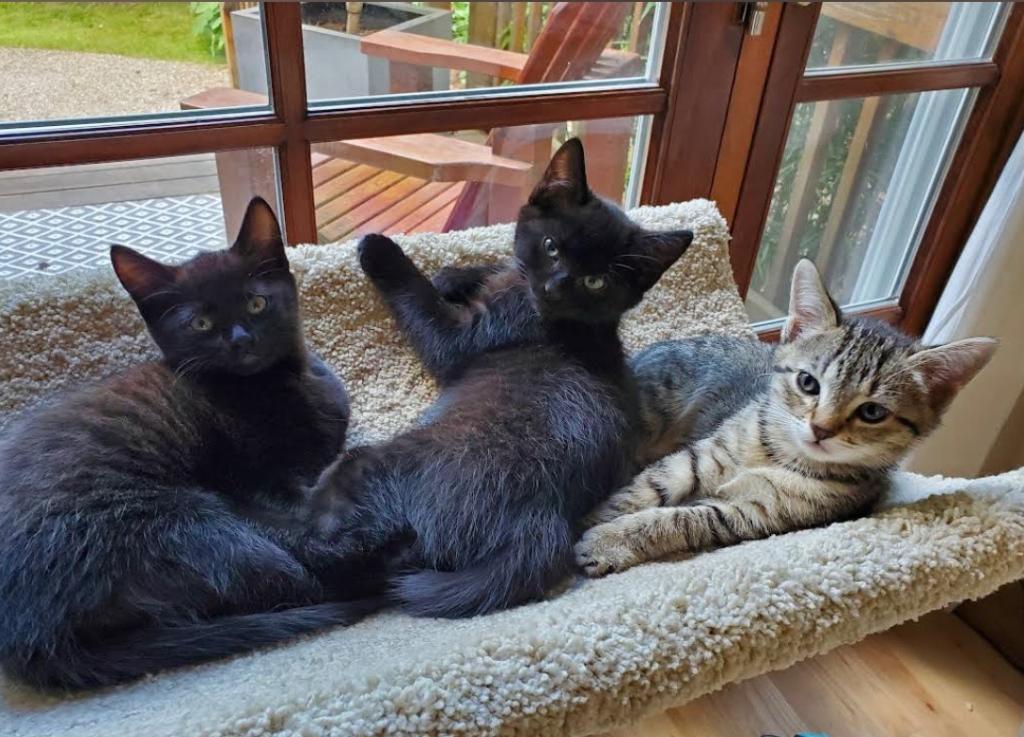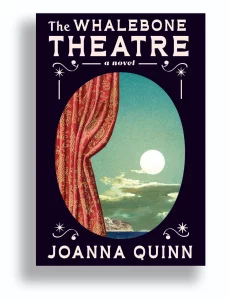
The Old, The New, and the Tired
The Whalebone Theatre by Joanna Quinn is a sweeper. Reading it reminded me of movies made 60 years ago. You know when blockbusters often had intermissions, giving a chance for viewers to push out from velveteen seats and wander into the lobby to get their legs back, dizzy from all that CinemaScope grandeur. I’m thinking of movies like Dr. Zhivago, Lawrence of Arabia, Ben-Hur.

The Whalebone Theatre was published in 2022 and is Quinn’s first book, but it could have been written decades earlier, it has that kind of vibe. It is loaded with characters from diverse backgrounds and the two world wars grip and shape most of their lives. But amidst the returning soldiers, gentlemen farmers, spies, and bohemian artists there are three who stand at the center of the story, Christabel, The Veg, and Digby. Oh, and there is an English manor house, Chilcombe. The structure of the storyline, with the three at the center, gives this sweeper of a novel a cozy feel -a Masterpiece Theater tale instead of a 70mm film.
Christabel Seagrave is the daughter of a woman who died in childbirth. Her father remarries when Christabel is 3 to a young self-absorbed woman. This pairing produces another daughter, who is promptly nicknamed The Veg, because she entered the world resembling a dried-out rutabaga (her own mother’s loving description). Before this couple can produce a male heir for Chilcombe, the father dies, and Christabel’s stepmother (and The Veg’s mother) marries the father’s handsome brother. (Stepmom was likely going to sex up her randy brother-in-law anyway, so father’s death was a convenience). The new pair produce a son and Chilcombe heir, Digby.
There are three then, three children who are mostly left alone by the hard-drinking partying adults (it is between the wars after all). And for the first part of the book, we are immersed in the imaginative world that can be spun up by children who freely roam the early 20th century English countryside with little adult interference. Their education is unstructured and unsupervised. They read only books from Chilcombe’s library, spy on raucous dinner parties, and become acquainted with a band of liberal bohemians who latch onto the property and choose not to keep the children at arm’s length. The three are also subjected to a series of preoccupied French nannies (preoccupied by…well the handsome father at Chilcombe) so they do learn the French language, which comes in very handy later.
Playacting is a big part of the children’s days, and they stage Shakespeare’s plays inside of a whale skeleton they have workers haul from the beach. Over time, the play productions become grander and many characters who revolve through the Chilcombe universe take part in the productions.
Playacting and the French language are skills the children will end up using as lifelines. In the second half of the novel, World War 2 dominates their lives as well as everyone else who wandered through Chilcombe. Both Christabel and Digby become spies in France while The Veg keeps the home fires burning. The story moves from an enchanting idyll into a handwringer that includes the French Resistance, turncoats, and Nazis.
It really is a sweeper this one. I loved it for as many hints as I could give you here. And even though The Whalebone Theater weighs in at nearly 600 pages, there were characters and places I wanted to learn more about. I take that as a good sign.
Here’s a book with a more modern vibe, the new: What Happened to Ruthy Ramirez by Claire Jimenez. This book is also a first novel (although Jimenez wrote a critically acclaimed short story collection called: Staten Island Stories). 
I started listening to this book, which is read by the author, and I was immediately caught up in the rhythmic power of Jimenez’s prose. The words run smart and snappy as they weave their way through the telling of a family tragedy. What a gift to be able to write like that. In the end, I bought the book to fully enjoy the story. But trust me, listening to the book and Jimenez’s voice is a big, fat yummy treat.
The Ramirez’s family story has an aching gap in it. In 1996, thirteen-year-old Ruthy disappeared from a bus stop on Staten Island on her way home from school. She was the middle daughter of a lively and loving family of Puerto Rican decent. Her disappearance wrecks the family. Here is how Jimenez introduces the aftermath:
“Draw my mother sixty-two pounds later. Give her diabetes. Kill my dad. Cut a hole in the middle of the timeline. Destroy any type of logic. Call that black hole, its negative space, the incredible disappearance of Ruthy Ramirez.”
Twelve years later, the two remaining sisters, Nina and Jessica, believe they see Ruthy on an awful reality TV show, Catfight. The woman who may be their long-lost sister calls herself Ruby, but it is how she tosses her hair and laughs that makes Nina and Jessica believe this could finally be Ruthy. Is it possible, after all these years, that Ruthy is a survivor?
The story is told in alternating voices, Nina’s, Jessica’s, and Dolores’ (the mother). Their family stories are a delight, you’ll laugh in parts. But there is also an unflinching narrative firmly rooted in Staten Island and Puerto Rican sensibilities that illuminates our screwed-up society. Parts of this book sting.
I’ll say no more except to urge you all to pick up this wonderful and slender work for one of your summer reading binges. Bonus info: Jimenez received her Ph.D from the University of Nebraska last year.

The tired: Lady in Waiting by Anne Glenconner. I must’ve lost my mind, I’ll admit it. But I was trying, you see, to understand the world’s interest in the crowning of King Charles the second (or third, whatever). It seemed ridiculous, all the interest in ancient rituals across the way, a celebration of fakery and fluffery. Still, I gave it a try. I had heard Lady in Waiting was a charming memoir celebrating the tenacity of the author. Blah Blah. The rich are often a bore in my opinion. The royal rich doubly so. It’s tough to read about all the money they spend on themselves, and the dismissive tones aimed at anyone lacking royal blood. Ugh. Did not Finish.


